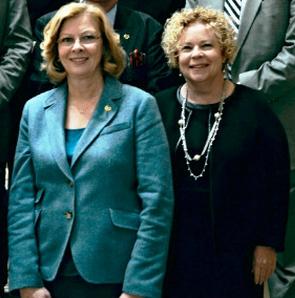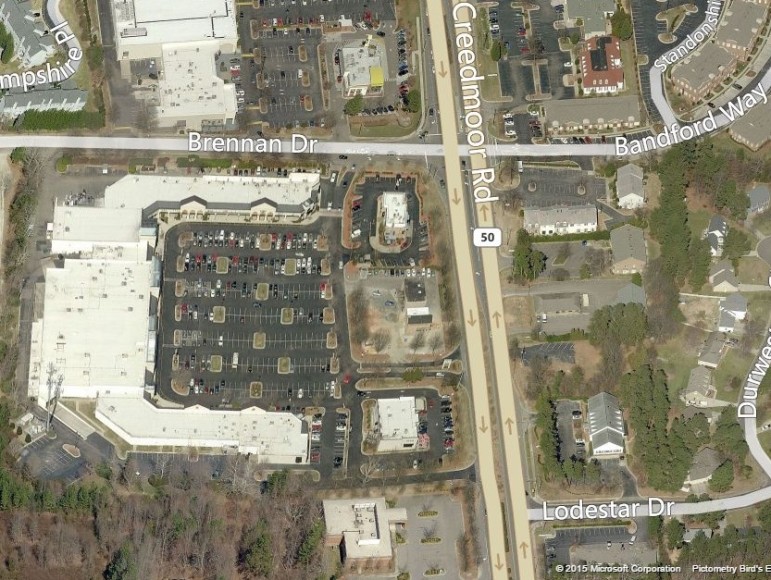In a public hearing session on Tuesday night, city councilors elected to hold open a rezoning case that proposed building a residential subdivision in north Raleigh.

City of Raleigh
Mayor Nancy McFarlane and Councilor Kay Crowder
Mayor McFarlane and Councilor Crowder were the only two to vote against it — arguing that the project should be rejected outright.
The case, Z-22-14, proposes rezoning a property on Creedmoor Road — surrounded by neighborhoods and a shopping center — to allow for more residential density.
A valid statutory petition had been filed in the case, and the Northwest Citizens Advisory Council voted 150-0 against the development of the residential subdivision. At the public hearing, residents of the surrounding neighborhoods cited access as the predominant reason why they were against the new development.
The issue in question, as explained by city staff, was a pair of stub roads that would undergo changes if the new development were to take place. Under the Unified Development Ordinance, the stub roads would have to either be terminated or connected through, which would lead to more traffic for the neighborhoods surrounding the development.
Isabel Mattox, a lawyer representing the developers, argued that the rezoning had been found to be consistent with the Future Land Use Map and the 2030 Comprehensive Plan, and that the Planning Commission had recommended approval of the rezoning in a 6-3 vote. She said the rezoning would increase connectivity and walkability, which were two principles of the UDO.

Bing Maps
The area on the left side of the map near the shopping center may soon house offices and residential units
Ben Kuhn, a lawyer representing the residents of the surrounding neighborhoods, showed pictures of the roads surrounding the property in a slideshow presentation. The pictures revealed roads that were in varying states of disrepair, beset with potholes and crumbling gravel.
Councilor Stephenson said the council needed to have some flexibility in dealing with unique cases and that the generic citywide rules of the UDO weren’t easy to apply in all cases. He made a motion to direct staff to draw up a text change that would give the council more latitude in rezoning cases. He then made a motion to deny the case, which Councilor Crowder seconded.
Councilor Odom asked whether it was possible to deny access from the development to the neighborhoods, to which Travis Crane, planning and zoning administrator for the city of Raleigh, replied that wasn’t. Crane explained that chapter eight of the UDO required increased connectivity within the city.
“I don’t want to move forward with any plan that puts more traffic on those roads,” Mayor McFarlane said.
The council discussed whether to deny the case outright and let the applicant come back with a new proposed development or to hold the case open and allow time for staff to draft a text change that might give the council more latitude in dealing with rezoning cases. Councilors Gaylord and Baldwin were proponents of the latter idea, saying it would allow the residents to have the opportunity to influence the case.
A vote was taken on Councilor Stephenson’s motion to deny the case and it failed 3-5, with Mayor McFarlane and Councilors Stephenson and Crowder voting to approve the denial.
A second motion was made to hold the case open to allow time for staff to draft a text change. It passed 6-2, with Mayor McFarlane and Councilor Crowder dissenting.
